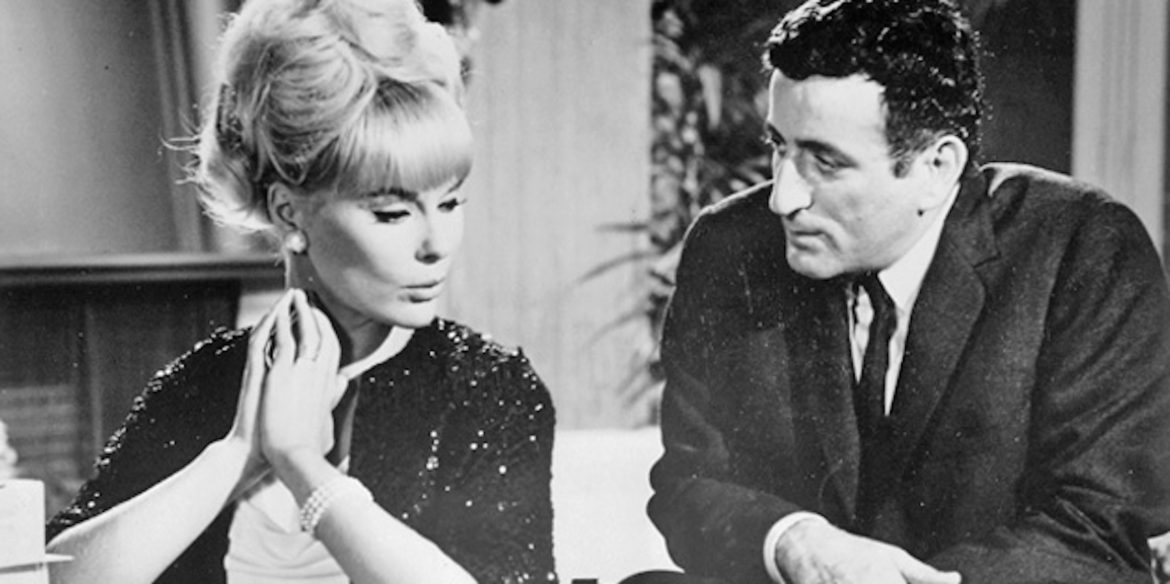Many singers have transitioned nicely into movies. Look at Frank Sinatra, Barbra Streisand, Doris Day, Bing Crosby, Whitney Houston, David Bowie, Bette Midler, Jennifer Hudson. But personally, I’m fascinated with the cinematic hiccups- and not the obvious disasters like Mariah Carey in Glitter or Madonna in Shanghai Surprise. Here are six sour notes in movies by successful songbirds.
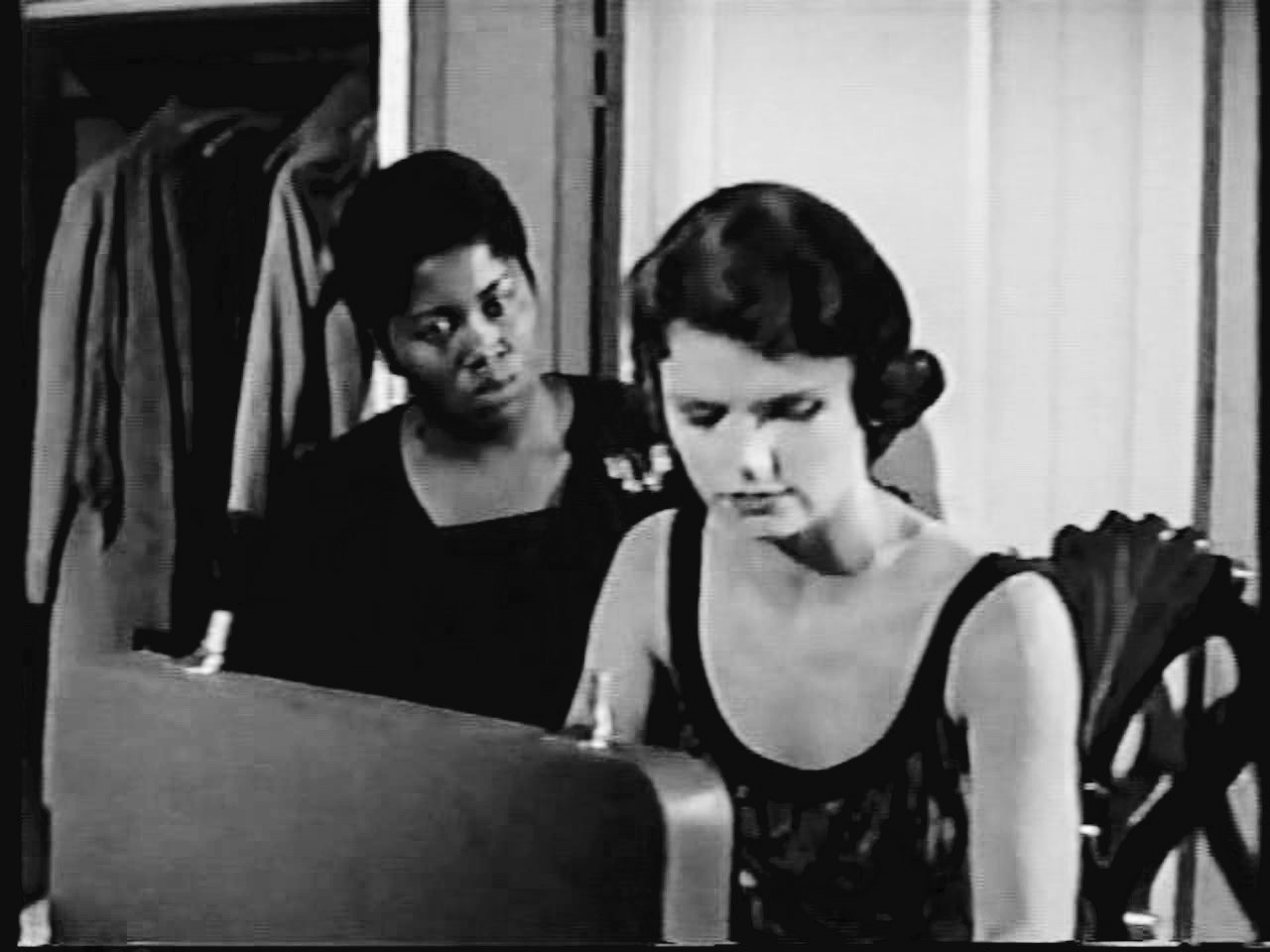
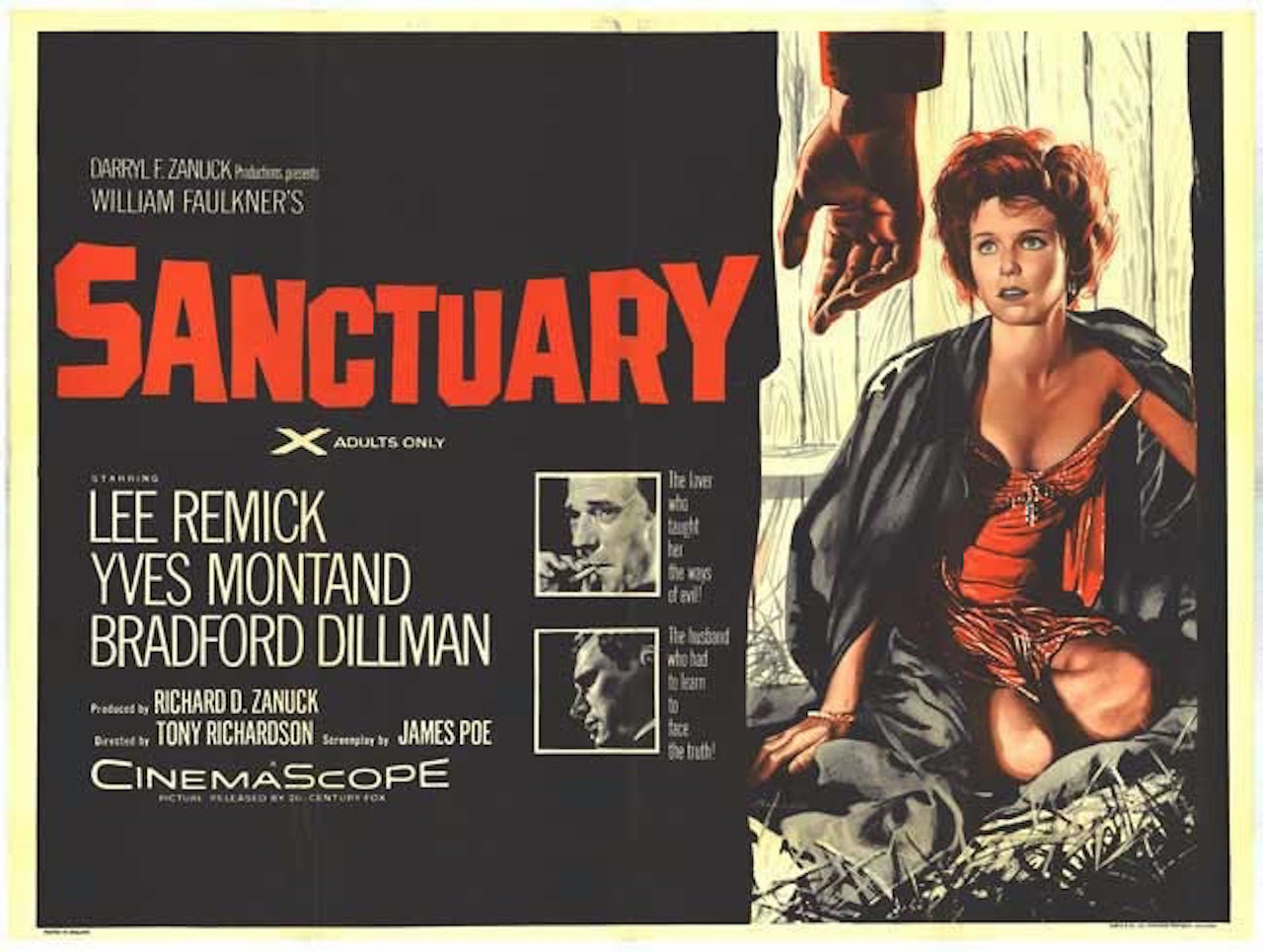 Odetta: Sanctuary (1961). Blame it on William Faulkner. It was his salacious novel Sanctuary that filmmakers have unsuccessfully tried to bring to the screen for years. The first was The Story Of Temple Drake (1933), a Pre-Code shocker starring Miriam Hopkins (in one of her best roles) as the free-wheeling, slutty Southern Belle who gets kidnapped by a gangster (Jack La Rue), brought to a whorehouse, and enjoys it. This movie was considered too depraved once the Production Code was implemented and has rarely surfaced since. But the adaptation that really sucked was Sanctuary, director Tony Richardson’s 1961 lame mix of two of Faulkner’s books- Sanctuary and Requiem For A Nun. The great folk singer Odetta plays Nancy, Temple Drake’s (Lee Remick) maid, on trial for murdering Temple’s baby. In order to save Nancy from hanging Temple goes to her Governor father and confesses her sins- and there are a lot. This time the gangster is bizarrely played by Yves Montand, who returns to torment Temple, who is now married with two children. It’s obvious that Richardson is attempting to make a liberal statement with his camera roving over the defeated faces in jail cells and his sympathetic portrait of Odetta’s character- a junkie prostitute. But in the end, it’s just a black woman sacrificing herself for a white woman, which really makes you cringe. Odetta, the singer. songwriter and civil rights activist, is actually soulful and terrific in the movie, which makes it even worse.
Odetta: Sanctuary (1961). Blame it on William Faulkner. It was his salacious novel Sanctuary that filmmakers have unsuccessfully tried to bring to the screen for years. The first was The Story Of Temple Drake (1933), a Pre-Code shocker starring Miriam Hopkins (in one of her best roles) as the free-wheeling, slutty Southern Belle who gets kidnapped by a gangster (Jack La Rue), brought to a whorehouse, and enjoys it. This movie was considered too depraved once the Production Code was implemented and has rarely surfaced since. But the adaptation that really sucked was Sanctuary, director Tony Richardson’s 1961 lame mix of two of Faulkner’s books- Sanctuary and Requiem For A Nun. The great folk singer Odetta plays Nancy, Temple Drake’s (Lee Remick) maid, on trial for murdering Temple’s baby. In order to save Nancy from hanging Temple goes to her Governor father and confesses her sins- and there are a lot. This time the gangster is bizarrely played by Yves Montand, who returns to torment Temple, who is now married with two children. It’s obvious that Richardson is attempting to make a liberal statement with his camera roving over the defeated faces in jail cells and his sympathetic portrait of Odetta’s character- a junkie prostitute. But in the end, it’s just a black woman sacrificing herself for a white woman, which really makes you cringe. Odetta, the singer. songwriter and civil rights activist, is actually soulful and terrific in the movie, which makes it even worse.
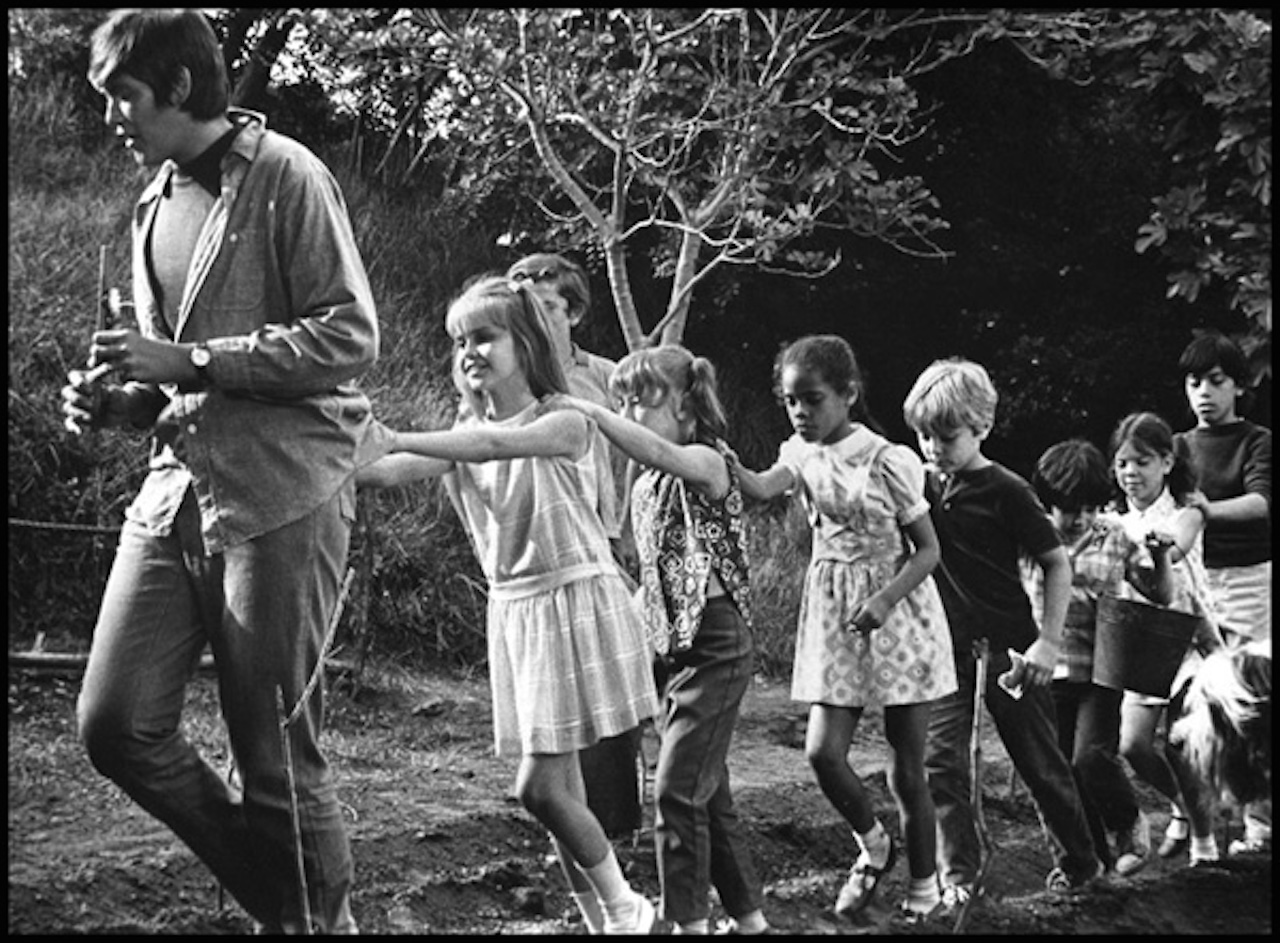
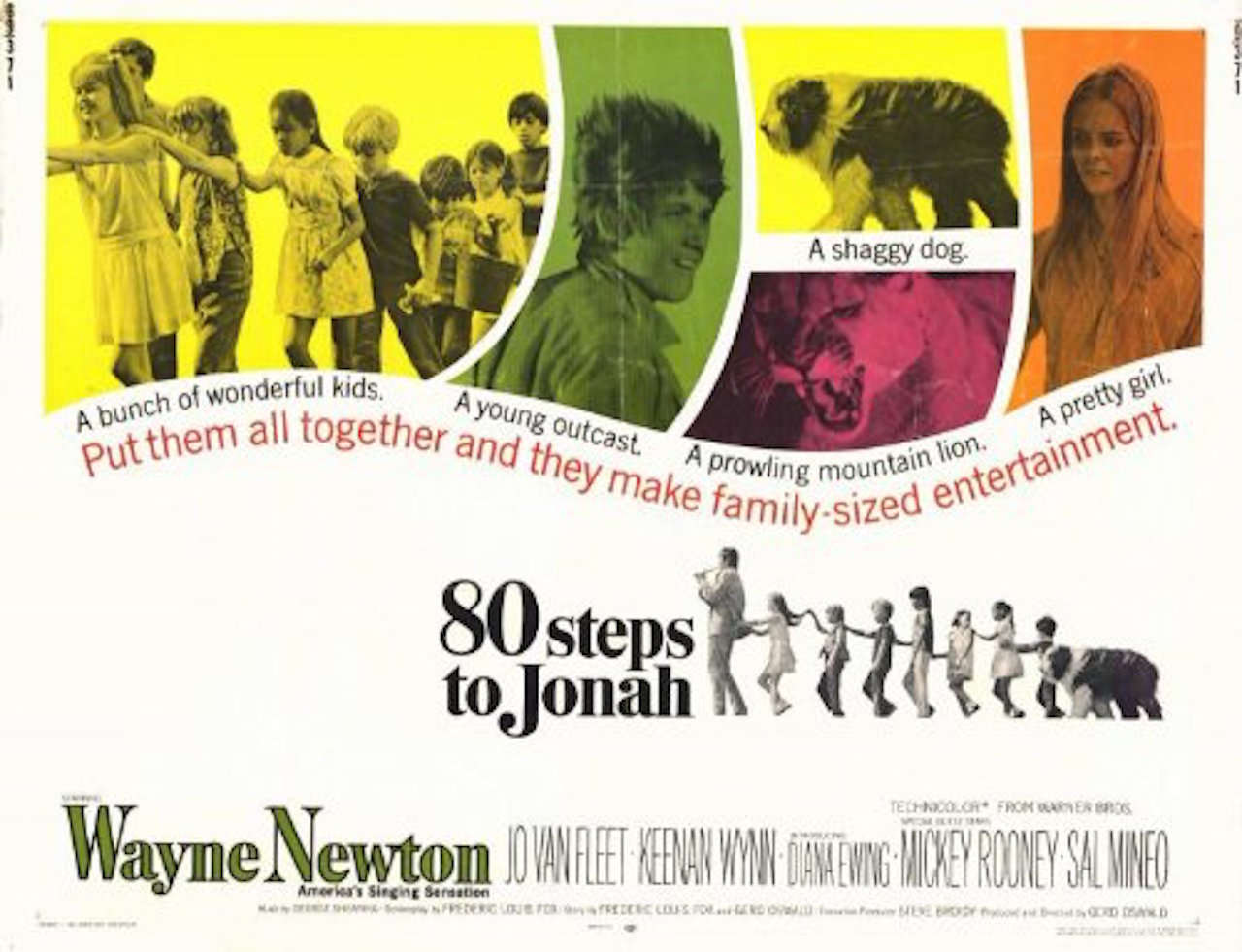
Wayne Newton: 80 Steps To Jonah (1969). A hideous kiddie movie with Wayne Newton, Mickey Rooney and Sal Mineo– Oh my God, it does exist! Newton stars as Jonah, a guitar-strumming drifter who has one bad day. While hitchhiking, he gets picked up by a knife-wielding creep (Sal Mineo) and is later forced to go on the lam from the police for a crime he didn’t commit. In his travels, Jonah stumbles upon a summer camp for blind children, watched over by a woman named Nonna (Jo Van Fleet from East Of Eden). There he becomes a Pied Piper, beloved by the children, who merrily plant tomatoes as they sing: “With a little seed and some love, and a little prayer from above.” One of the older blind girls (Diana Ewing) even falls for him in A Patch Of Blue moment of cinematic ickiness. Meanwhile the cops are hunting for him and a Volkswagen-driving drunk (a ghastly and not surprisingly over-the-top, Mickey Rooney) holds the key to the proof of his innocence. This was actually made while the future “Mr. Las Vegas” Wayne Newton’s musical career was cooking with gas (after his smash hit Danke Schoen), but he looks weird on camera. To be honest, I think he looks like a young Maine lesbian. And what the hell is Sal Mineo (Rebel Without A Cause) doing in this G-rated turd? The kid actors in the movie include future ‘tween stars- the criminally cute Brandon Cruz– who would later star on the TV series The Courtship Of Eddie’s Father with Bill Bixby. And elfin Erin Moran, later to be cast as Joanie Cunningham on Happy Days and Joanie Loves Chachi. Moran actually recites the title of the film in a frighteningly cloying scene where she walks 80 agonizing counted-out steps to blindly navigate her way to Jonah (Newton). Director Gerd Oswald also directed the terrific thriller A Kiss Before Dying (1956) starring Robert Wagner, and Screaming Mimi (1958) a fascinating psychodrama starring Anita Ekberg, not to mention scores of The Outer Limits episodes on TV. But he also directed the appalling Bunny O’Hare (1971) with Bette Davis and Ernest Borgnine who dress up as hippies to rob banks. Jonah, though, is the kind of jaw-dropping travesty that has to be seen to be believed. And watching Sal Mineo hold a switchblade to the fey yet weirdly asexual Wayne Newton is one transgressive moment of celluloid creepiness.
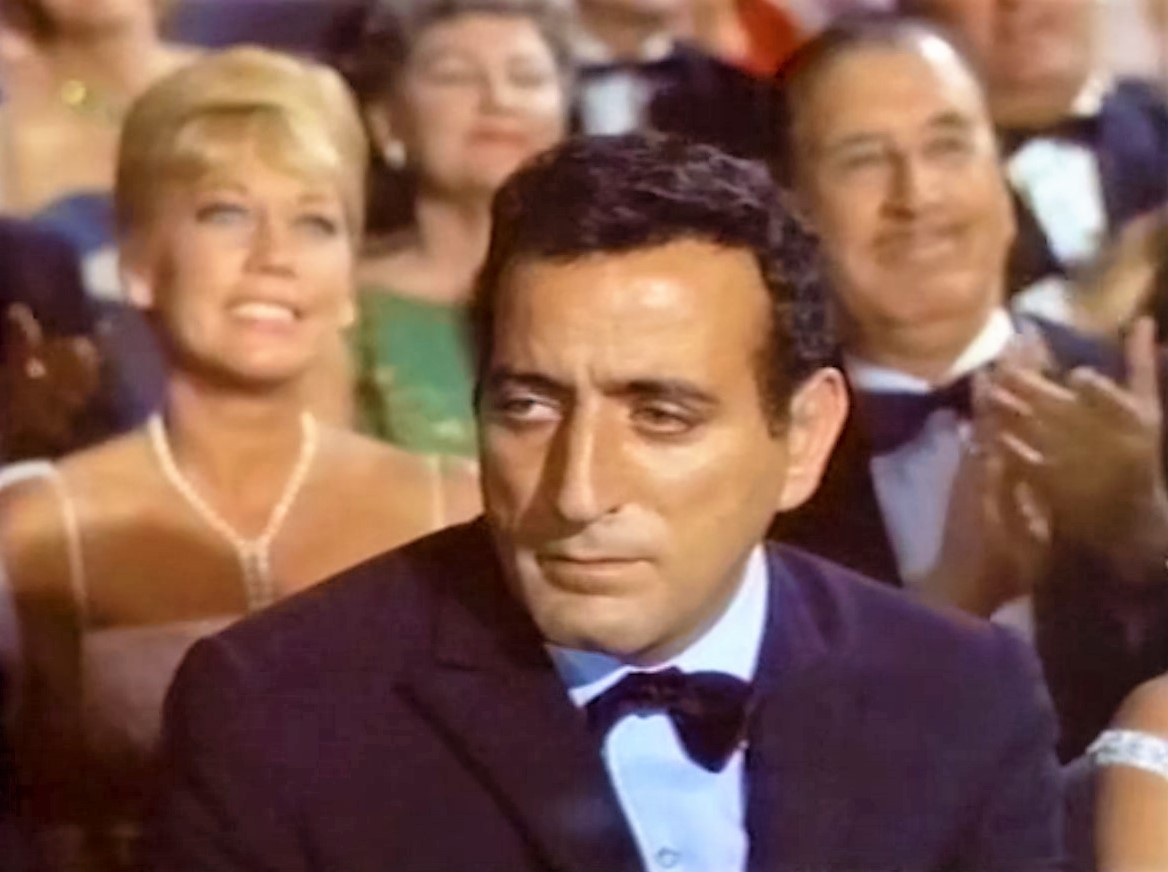
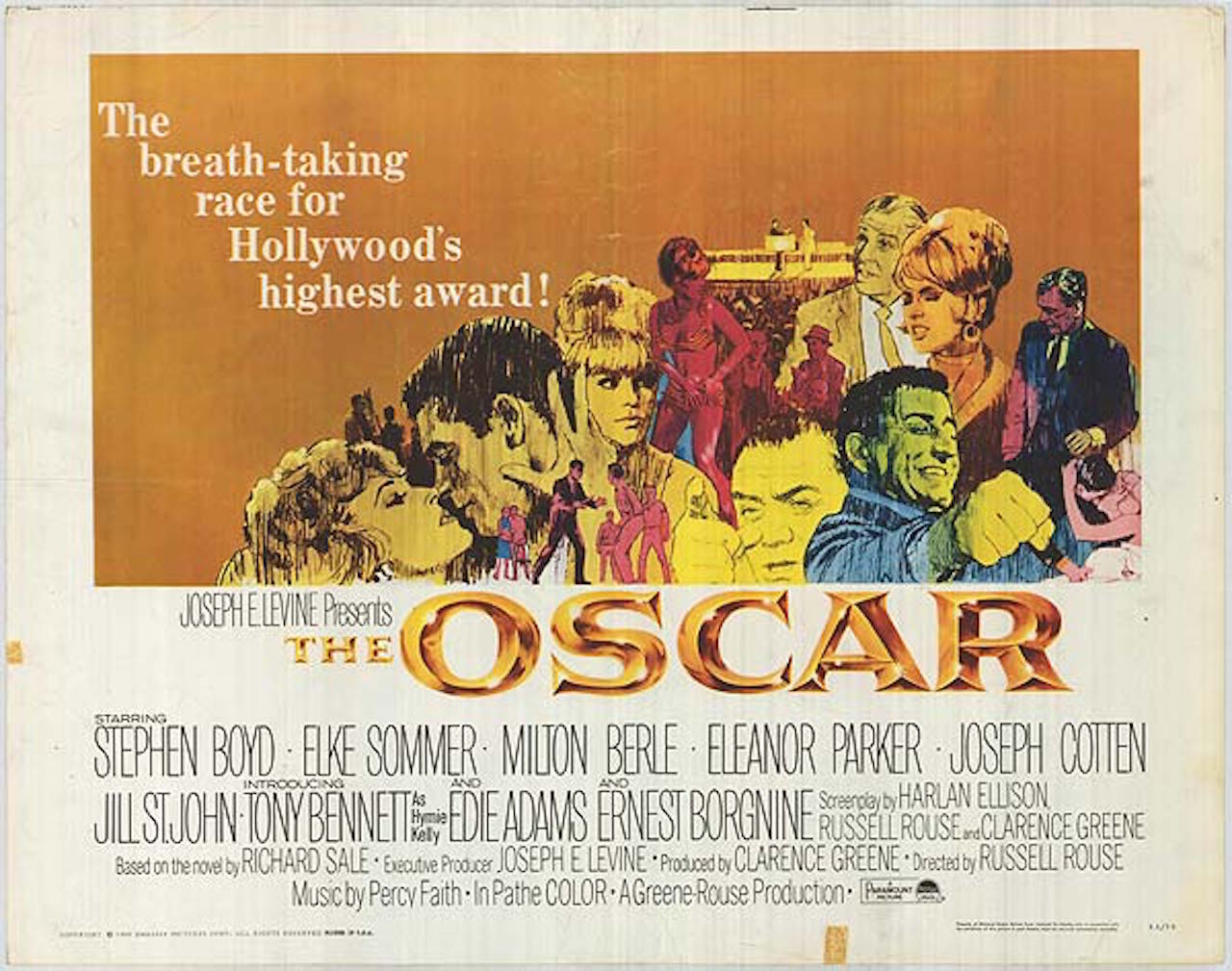
Tony Bennett: The Oscar (1966) In this gloriously laughable film about a Hollywood cad- Frank Fane (Stephen Boyd), Tony Bennett has the unenviable job of playing Fane’s put-upon manager Hymie Kelly. Where did you get the name Kelly, ‘Hymie’?” a Sherriff asks him, snidely. “From my father, Michael Kelly! And he got it from his father, Timothy Kelly! And my mother’s name was Sadie Rabinowitz, any more questions?” Frank is a womanizer (Jill St, John, Elke Sommer, Eleanor Parker), but a movie studio mogul (Joseph Cotton) sees his potential, “Once in a while you bring me meat like this. It all has different names: prime rib of Gloria, shoulder cut of Johnny. Meat.” And before long Fane’s fame rises. “Man, he wanted to swallow Hollywood like a cat with a canary. And he did!” Hymie muses to the audience. It all ends with a sleazy campaign to win an Oscar that ends with a whopper of a comeuppance. By then, Hymie has washed his hands of his old friend. “You lie down with pigs, you come up smellin’ like garbage,” he warns Fane. Bennett fortunately for us, returned to full time singing after this stink bomb.
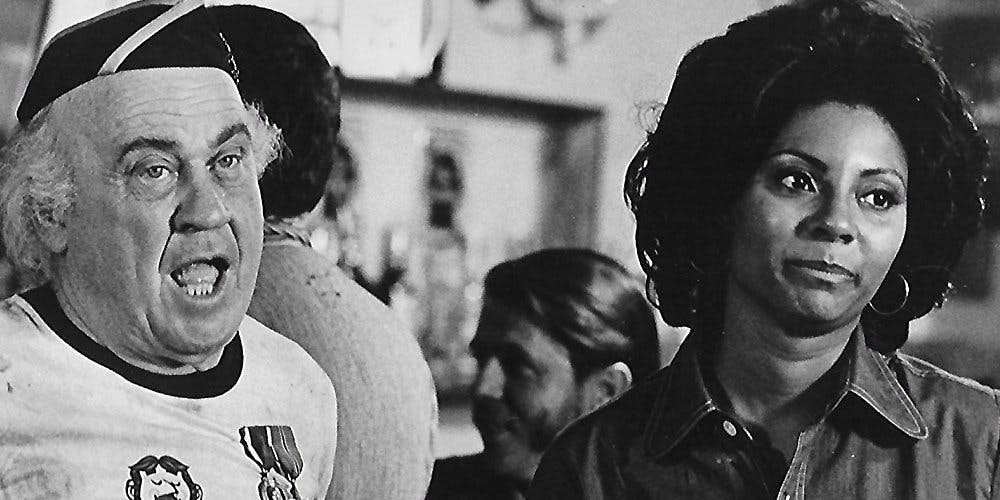
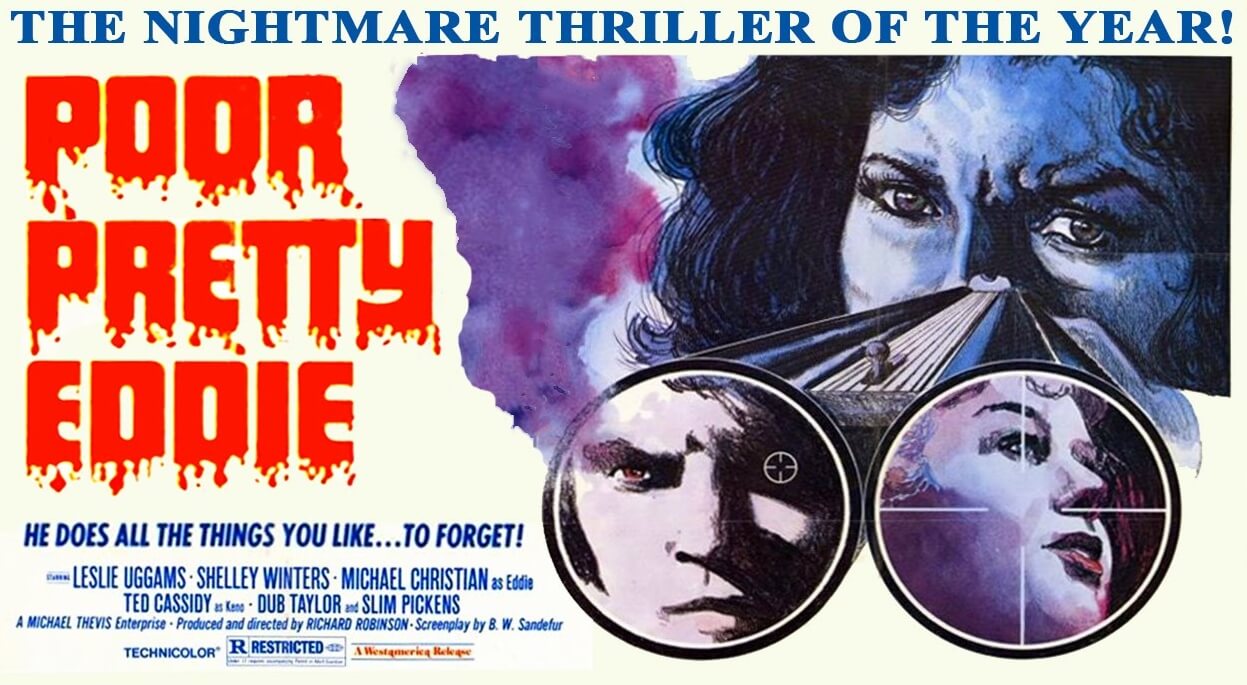
Leslie Uggams: Poor Pretty Eddie (1975) (aka Heartbreak Hotel) Leslie Uggams was a child singer in 50s TV shows and graduated to The Lawrence Welk Show and Mitch Miller’s Sing Along With Mitch. She’s still performing and acting- excellent as Lucious Lyon’s loony bi-polar mother on Empire, and her hilarious turn as Ryan Reynold’s blind roommate in the Deadpool films. But Poor Pretty Eddie is pretty damned deranged. In it she plays famous singer Liz Wetherly, traveling across country on vacation, who has the misfortune to have her Bentley break down in front of Bertha’s Diner, a roadhouse in the middle of what looks like the set of The Texas Chainsaw Massacre. Shelley Winters plays Bertha, a blowsy, alcoholic ex-stripper who lives there with her redneck boy-toy Eddie (Michael Christian), who fancies himself a country western singer and wears spangled Elvis-like outfits. Eddie makes sure Liz’s car doesn’t get fixed and ends up sexually attacking her in her cabin at night. Liz tries to escape but gets arrested for stealing a jeep and at her mock trial she has to testify in her bra. It all ends with Eddie attempting to marry Liz in front of a roomful of drunken yokels until there’s a wild shootout and Leslie Uggams gets hold of the rifle for some serious payback. I love showing this movie to friends who usually stagger out of the apartment afterwards, speechless.
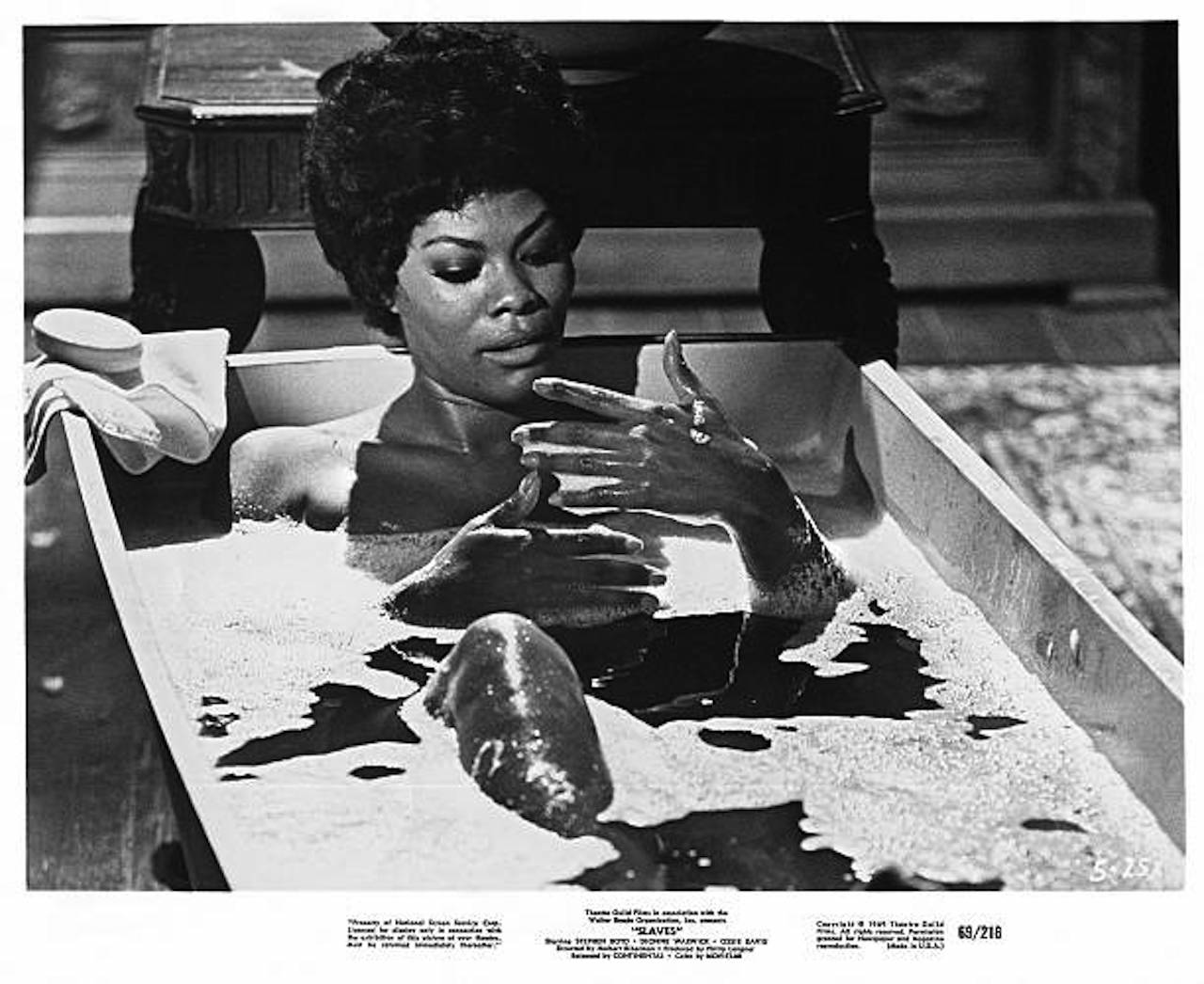
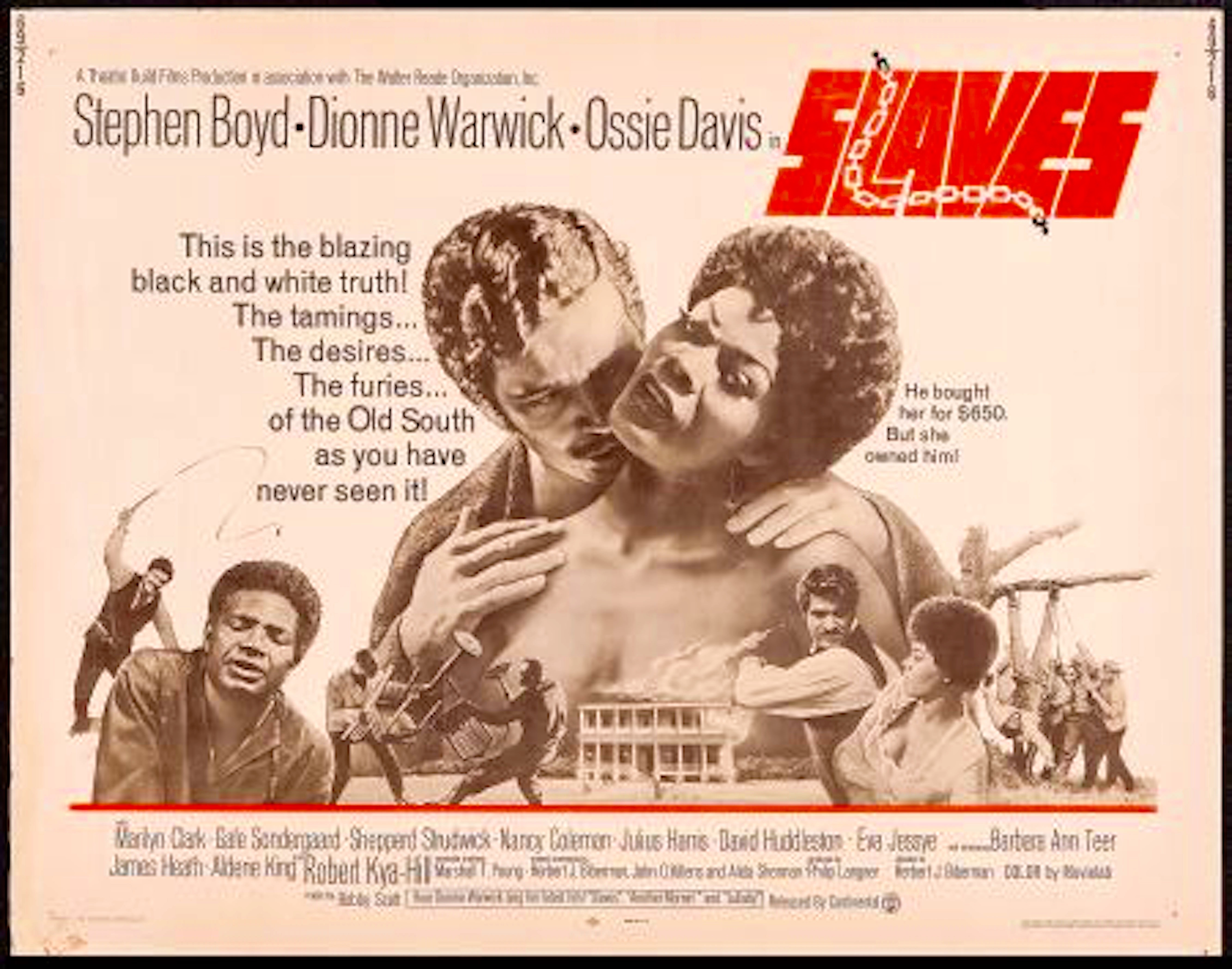
Dionne Warwick: Slaves (1969) You’ll need to “Say A Little Prayer” to get through this Blaxploitation film starring singer Dionne Warwick. Warwick, who rose to fame in the 60s with her soulful interpretations of Burt Bacharach and Hal David songs, stars as Cassy, the slave and love interest of plantation owner Captain MacKay (Stephen Boyd), who buys her jewelry, gowns, gives her the run of the house and plenty of rum to drink. In one scene, he orders Cassy to: “Take your clothes off. It can be angry- just as long as it’s lively for a change.” Ossie Davis stars as Luke, the Bible-reading Kentucky slave who was cheated out of becoming a free man and sold to the cruel MacKay, leaving his wife and children behind. One startling moment has Cassy confessing to Luke about being a parent herself, “I sent my little girl to freedom- I drowned her in that swamp over there.” The movie is a grim affair, and lacks the outrageous lunacy of Drum or Mandingo. Boy, these Slavesploitation flicks really have aged poorly, and would be received with fury now from the #blacklivesmatter generation. But I remember seeing a lot of this kind of crap in theaters filled with mostly African American patrons who didn’t take any of it seriously and roared with laughter. Audiences today are more sensitive to the way black people are portrayed on screen, and with good reason. Perhaps this is why Slaves has never been released on home video. Interestingly, actress Gale Sondergaard shows up in a cameo, and her husband Herbert J. Biberman is the director of the film. Both were blacklisted during the McCarthy Era.
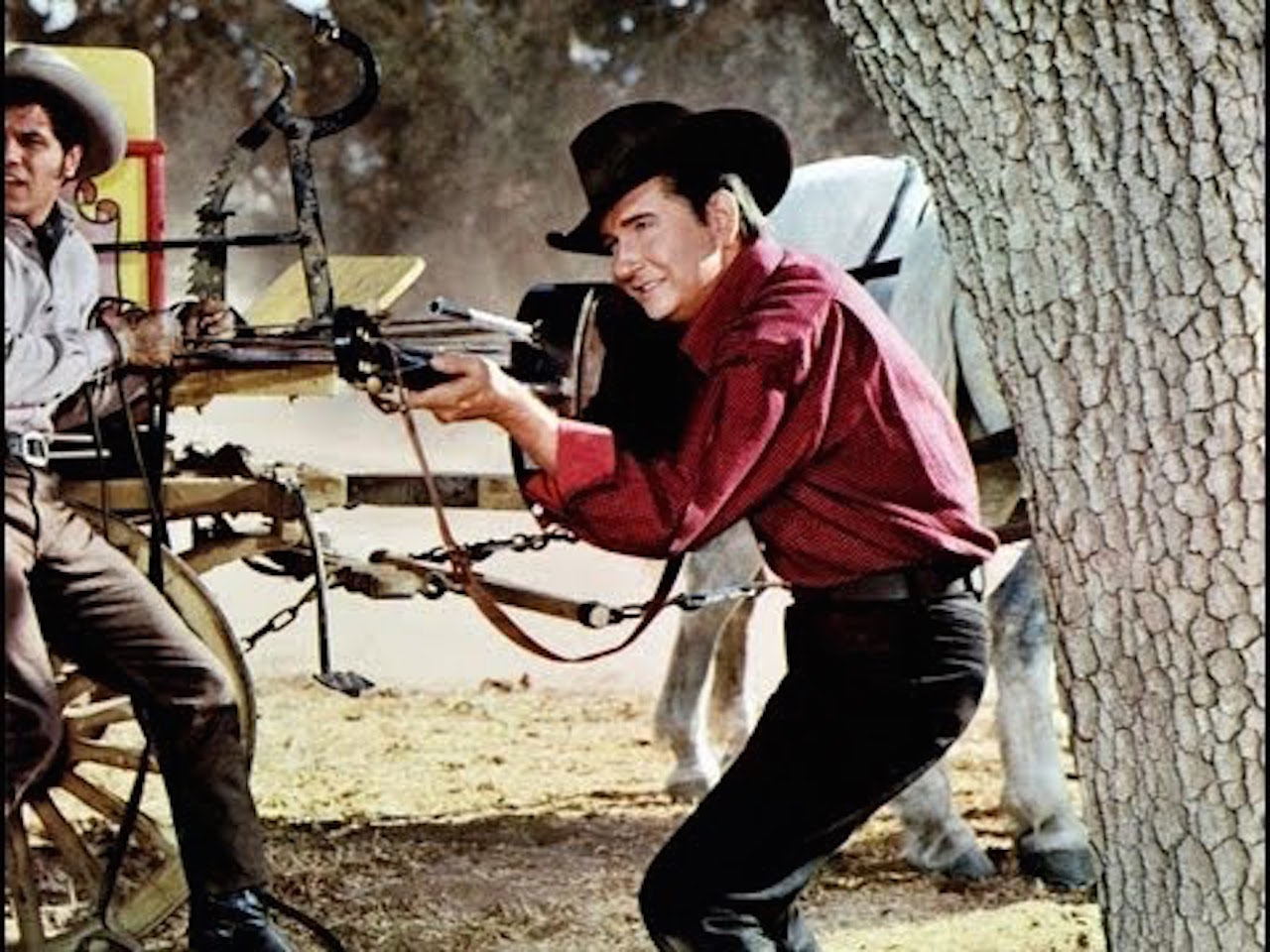
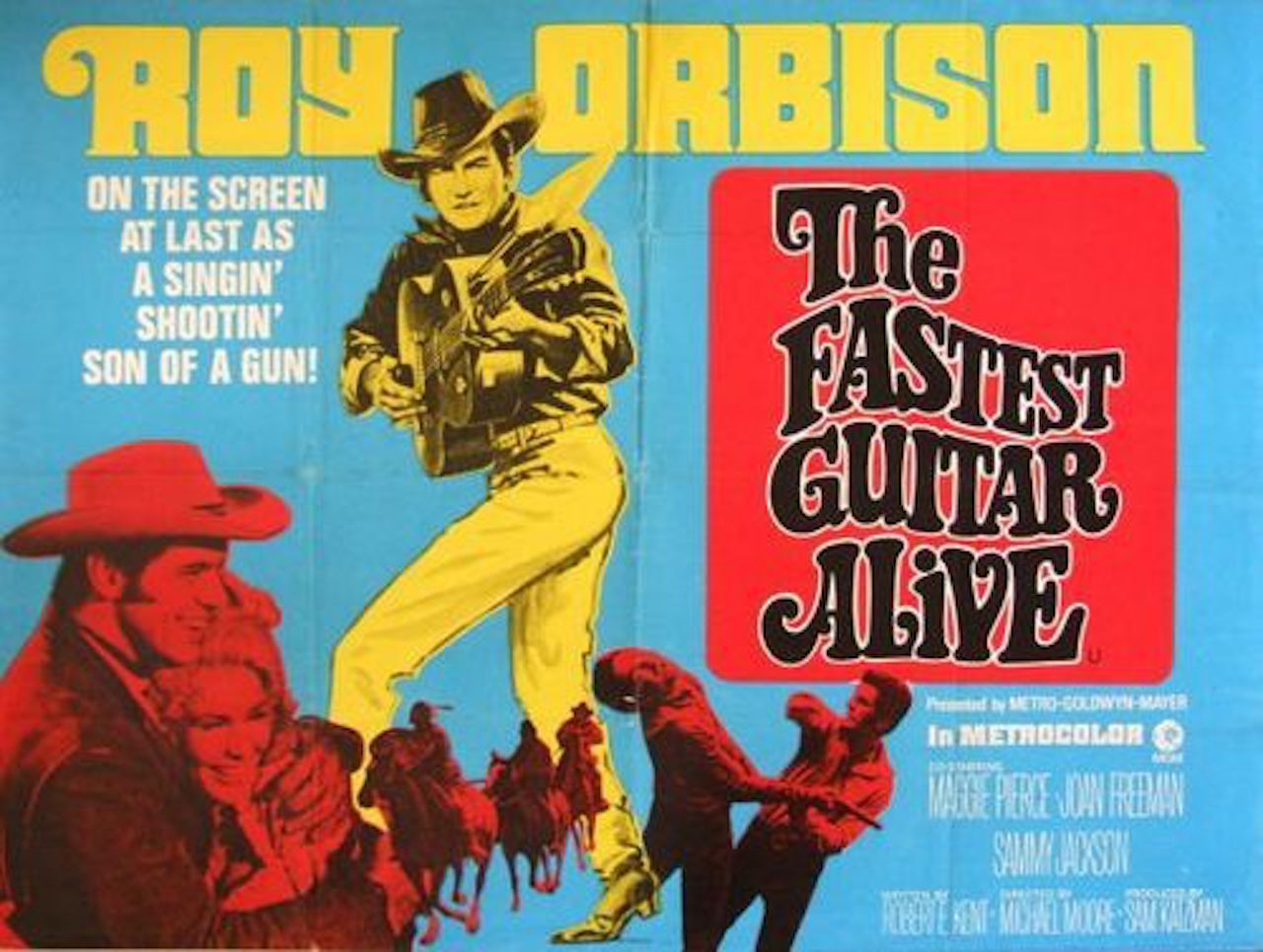
Roy Orbison: The Fastest Guitar Alive (1967).” Well if Elvis can be a star…” seems to be the reasoning behind this ghastly western/comedy starring singer Roy Orbison. Orbison, whose voice a writer described as “a glass-shattering falsetto,” even had Elvis Presley calling him “the greatest singer in the world.” But his flat, affectless acting didn’t have audiences clamoring for a sequel. This saga is set at the end of the Civil War, and Orbison plays Steve, a traveling troubadour and Confederate spy planning to rob a bank in San Francisco to fund the South. Steve has a guitar outfitted with a rifle that slides out to shoot lead at the bad guys. There’s a weird segment with a Native American tribal chief who pours paint on an animal skin and then rolls in it. “Is Neo-Impressionist School! Someday, when I am finished painting on me, I will paint on canvas!” Steve has a wagon that he parks near a saloon where he hawks “Dr. Ludwig Long’s Magic Elixir” and plots his big heist. Thank God for the songs because the family-friendly gags will leave you gagging. Maybe that’s why Roy Orbison always wore sunglasses- he was forever living this movie down.

